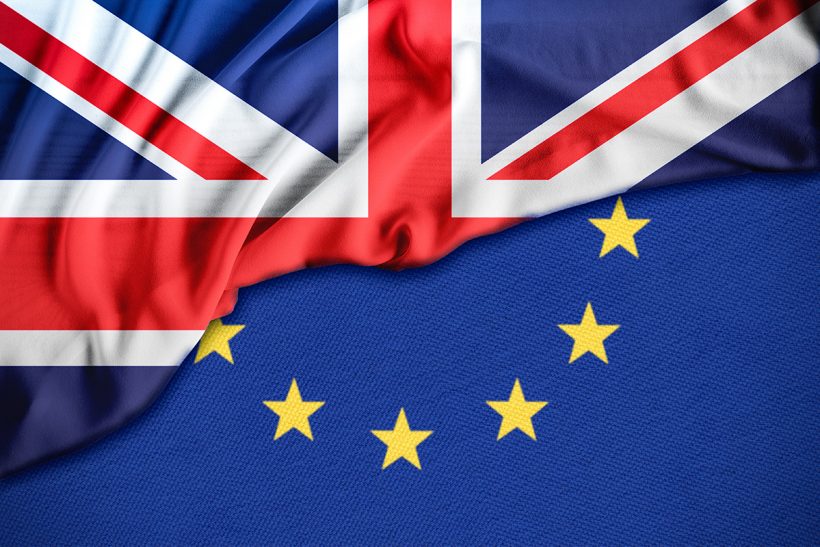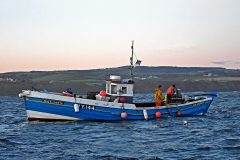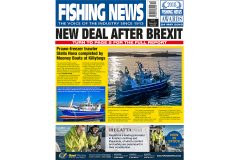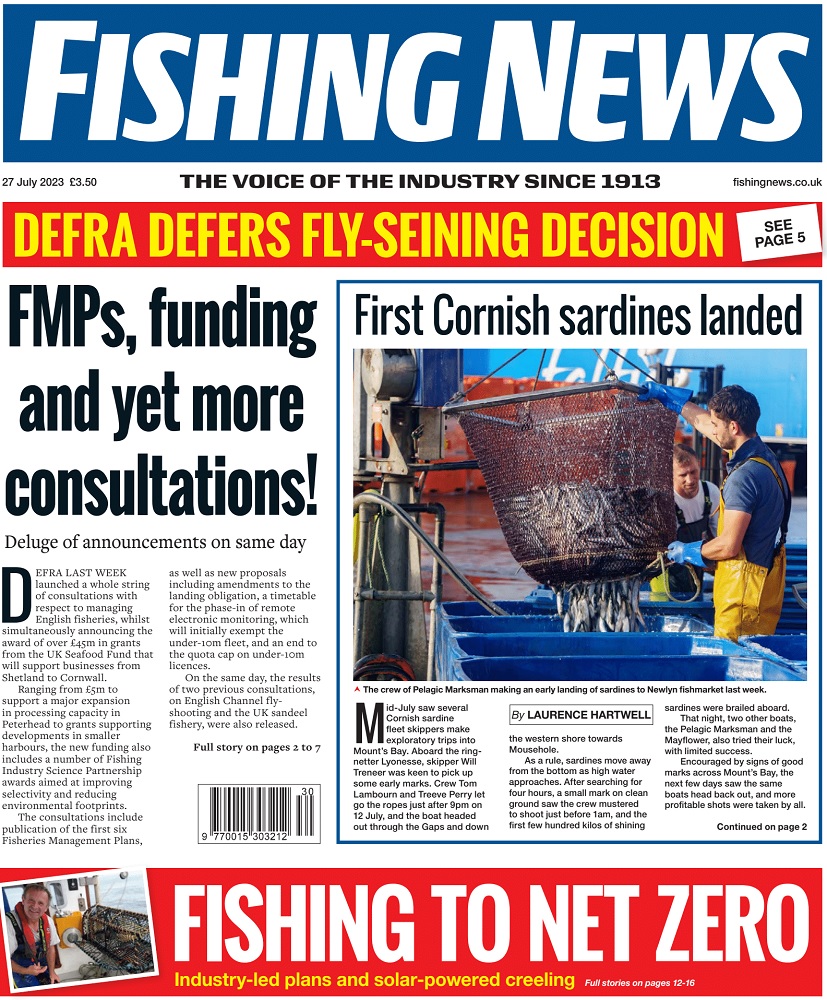Devolved powers major issue in White Paper.
The UK government says it will ‘aim to make sure that UK fishermen have access to a fairer share of fishing opportunities in our waters’ once the UK regains control of its 200-mile EEZ after Brexit, reports Tim Oliver.
It says it will negotiate to address the imbalance between fish caught in our waters by foreign vessels compared with our fleet’s catch in other countries’ waters. This will take account of changes in fish stocks and exploitation patterns over the past four decades, including as the result of climate change.
The UK fleet catches approximately 100,000t of fish from the EU’s EEZ, but the EU catches over 750,000t of fish from UK waters. “We will seek a more equitable system, with fairer share of TACs for the UK fleet in future,” says the White Paper.
DEFRA will establish a new working group that will look at fairer methodologies to agree future quota shares based on zonal attachment and/or catch history.
The government also says that fish stocks are ‘a public asset’, and that Brexit will provide the opportunity to allocate these assets in ways that help to deliver a new management regime.
The comments are in a draft version of the government’s White Paper on post-Brexit fisheries management – seen by Fishing News – which is expected to be published soon, ahead of the new Fisheries Bill.
There is no detail on how the newly negotiated fishing opportunities will be shared between the devolved administrations. It is clear from comments in the draft document that the management powers of the devolved administrations are going to be a highly significant issue as the new regime is hammered out. A number of the proposals in the document apparently refer only to England.
DEFRA will look at best practice from other fisheries nations, such as Iceland and New Zealand, ‘where industry works in closer partnership with government, while making a greater financial contribution’.
DEFRA will also look at setting up a ‘national reserve’ of fishing opportunity in England to be allocated by the MMO ‘in accordance with new criteria’. It will work with the industry and key stakeholders to develop these.
Some early thoughts include retaining some fishing opportunities to incentivise discards reduction, and placing a value on fish as a sustainable natural resource and raising revenue from the new opportunity.
The government will champion sustainable fisheries and conservation. It will continue to apply the MSY principle when setting or agreeing TACs, and will also work towards ending ‘the shameful practice’ of discards.
Potential measures to reduce discards include remote electronic monitoring (REM) on high-risk vessels; measures to promote selective gears and avoid high-risk areas (eg real-time closures); further exemptions for high-survivability species; possible removal of certain stocks from catch limits (quota).
REM using on board CCTV may also be required for all vessels fishing in the UK’s EEZ.
The Fisheries Bill will also include proposed powers for the UK government to set fishing opportunities – principally quota – and technical measures.
Fisheries management in England
Referring specifically to fisheries management in England, DEFRA will recognise the importance of FQAs when considering any future changes to the quota system.
Any new quota acquired after Brexit will be allocated under a different basis to the current FQA system – although the White Paper does not say what criteria will be used to allocate quota, either between the devolved administrations or to POs and/or fishermen.
“The Fisheries Bill proposes powers to explore and pilot alternative approaches to the future allocation of quota, and models to fund future fisheries science and enforcement,” says the draft White Paper.
“We will consider the establishment of a ‘national reserve’ of quota to be managed and allocated by the MMO in accordance with new criteria to meet the future needs of the industry.”
Also under consideration is allocating some new quota through a tendering system based on applicants’ plans to deliver sustainable fisheries, promote the economic interests of coastal communities, create opportunities for new entrants, and a financial consideration.
Some of the new quota in the national reserve may be used to tackle choke fisheries created by the discards ban. This would involve a new ‘incentive charge’ on over-quota catches related to the market value of the fish, with the over-quota catches being covered by quota set aside for this purpose in the national reserve.
This would be ‘a powerful disincentive’ to target species with low quotas, and would avoid tie-ups due to chokes.
Low impact vessels
DEFRA will consider new criteria to define low-impact inshore vessels to replace the current ‘arbitrary’ under-10m category, (It is not clear whether this applies only to England or also to the devolved administrations).
Possible alternatives include limits to engine power and restrictions on where such vessels can fish. “This approach could allow us to provide increased fishing opportunities, or lighter regulation, for those involved in low-impact fishing activity.
“It will also pilot an effort (days-at-sea)-based regime in place of a quota regime for some low-impact inshore fisheries. Quota to cover such landings will be held in the inshore quota pool, with the MMO and CEFAS managing effort to target quota limits on each species on a national basis.”
This would require ‘robust vessel monitoring systems and catch reporting to evaluate the outcomes and case for any extension of trialling’.
If trials are successful, DEFRA will consider further trials of effort-based regimes or alternative hybrid models in other parts of the demersal fleet.
It will also consider how it can integrate recreational angling within the new fisheries framework. “A greater degree of regulation in certain cases may be required where there is evidence that angling has had a significant impact on stocks.”
UK framework
Turning from England to a new UK framework, the draft White Paper says the UK will work with the devolved administrations ‘to develop a new UK framework for fisheries management that maximises their power to manage their fisheries while maintaining internal and international coherence for a UK policy’.
It says DEFRA is working closely with the devolved administrations to decide which of the powers returned from the EU need to be exercised at a UK level, and which should be devolved.
In international negotiations, the UK delegation will include representatives from each administration of the UK, as is the case now. Consensus will be sought on negotiating priorities. Where there is a disagreement, the Secretary of State will have the power to make a final decision as the leader of the UK delegation.
Transition
December 2018 will be the final year that the UK attends the EU December Council. The details of any implementation period are still to be negotiated with the EU. One option would be to roll over the agreement reached in 2018 until the end of 2019. But this would be a matter for negotiation, and could only be considered if the agreement reached in 2018 is acceptable to the UK.
DEFRA said it had consulted widely with stakeholders since the EU referendum at ministerial and official level, speaking to individual fishermen, importers, exporters, retailers, POs, academics, independent consultants, charities, representative organisations, interested parties and environmental groups.
Note: This report is based on a draft version only of the White Paper, which is due to be published in the next few weeks.
Read more news from Fishing News here.






